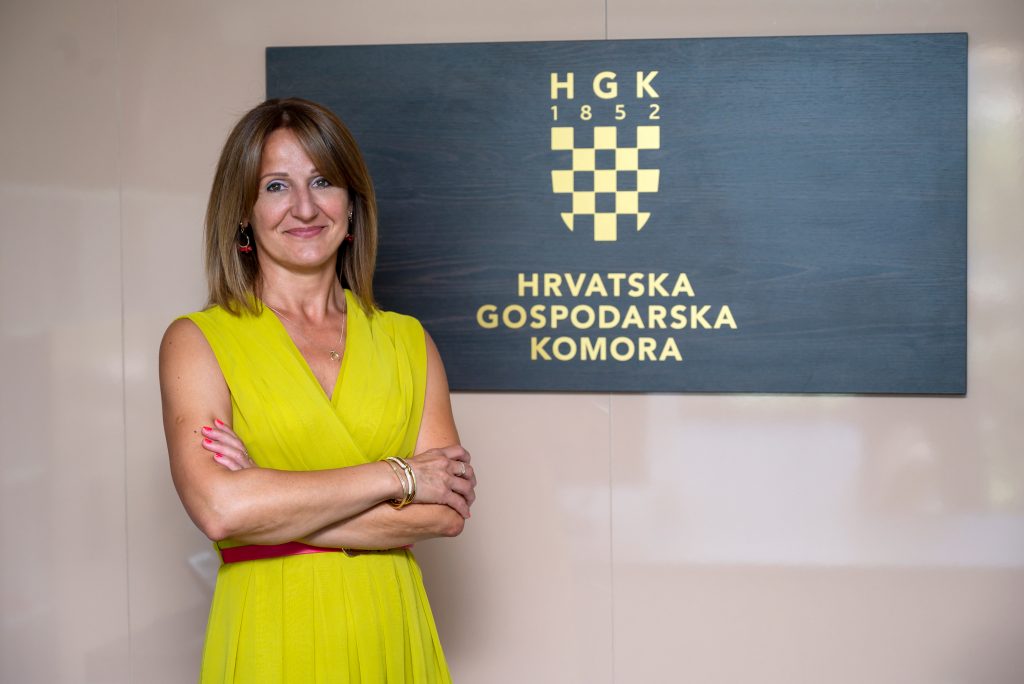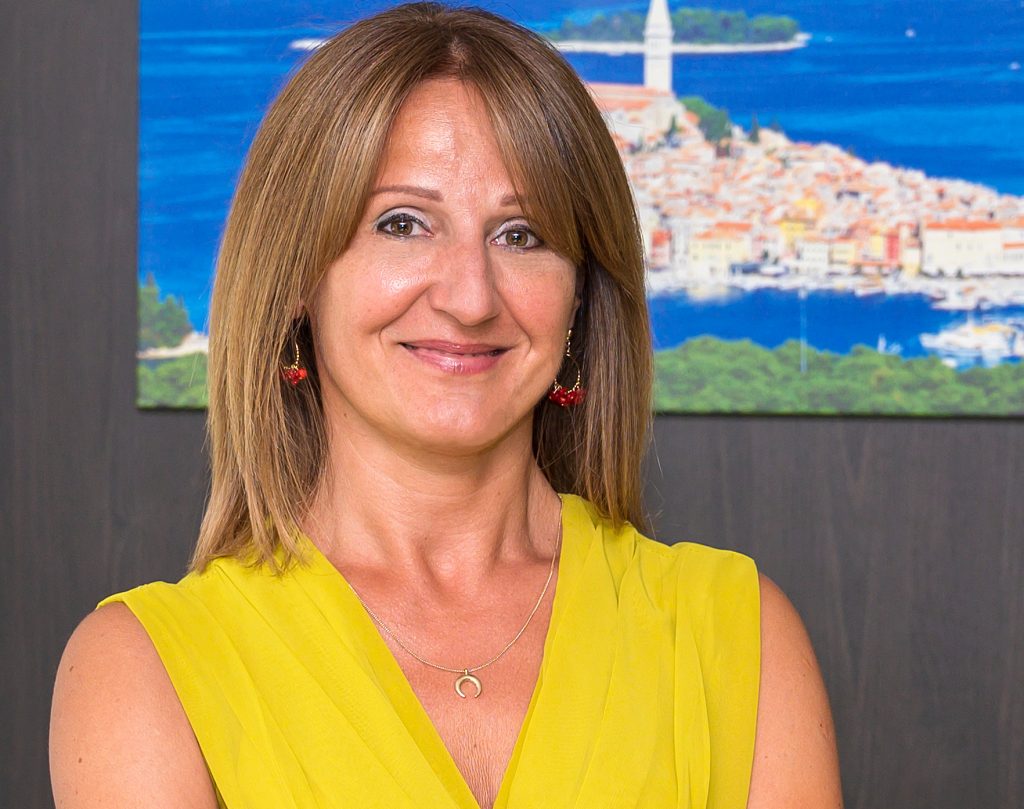Business and money know no borders and do not concede to political barriers. During the previous period, we witnessed various political disagreements, but economic cooperation is going well, which is good for both sides.
Since its inception, the role of the Croatian Business Club (CBC) has been to provide companies with information about the market, business conditions, customs regulations, as well as to help them find business premises and establish business contacts, says the president of the CBC in Belgrade, Marija Radulović.

The CBC in Serbia was founded 14 years ago. What has changed in the business climate and business conditions in these 14 years?
Business and economic environment have changed since the Croatian Business Club’s inception to date. Since then a large number of Croatian companies have come or returned to this area. Just at that time, the renowned company Badel returned to this market, a couple of years earlier, INA opened a representative office in Belgrade, and one of the largest food industries, Atlantic Group, was actively expanding in the region to include Serbia. The role of the Croatian Business Club is to provide market-related information to companies coming to Serbia. Now, the CBC provides support to small and medium-sized enterprises, both Croatian ones that are setting up their business in Serbia, as well as to local ones that want to cooperate with them in any way, either in the Serbian or Croatian market.
The economic relations between Croatia and Serbia are good, they are constantly progressing and are completely different from the direction that political relations have been taking. What are your impressions in terms of Croatian investments here?
Business and money know no borders and do not concede to political barriers. During the previous period, we witnessed various political disagreements, but economic cooperation is going well, which is good for both sides. There are a lot of big investments in Serbia that are little talked about which were made since the year 2000 and even earlier. For example, the Rasco Company, which was founded 30 years and does business on five continents, has made a very successful acquisition in Senta, where it operates under the name Rasco Tump and is engaged in the production of utility equipment and fittings. The Rotografika printing company in Subotica is also a very successful investment. The aforementioned Atlantic Grupa has also made one of the most successful in the region here.
We are prepared to work remotely as we already have experience with that, so we will be available to our members for everything they need, even in these altered circumstances
Is there room for improving economic cooperation and in which industries there is an opportunity to progress the cooperation even more?
There is really a lot of space for cooperation – starting with cooperation in the field of new technologies through opportunities for joint production in smaller companies, especially when it comes to cross-border cooperation between Vojvodina and Slavonia. There is also an opportunity for the implementation of joint projects in the field of energy, environmental protection, storage and waste management. A number of other possibilities arise from all these opportunities, especially when it comes to small and medium-sized enterprises.
Parliamentary elections in Serbia and Croatia are finished. What do you expect from the new governments and how will the election results further affect not only the economic but also the overall relations between the two countries?
I believe that the new governments should utilize the fact that our two countries are neighbours for Serbia’s faster accession to the EU, given that Croatia, as a full-fledged member of the EU, can and should try to help Serbia on that path, and Serbia should accept support if it wanted for the accession process to accelerate.

Both countries have implemented measures with the aim of combating the crisis caused by COVID-19. How will this pandemic affect the companies, especially those in the SME segment?
Research shows that more than 80 per cent of small businesses expect to suffer from serious consequences as a result of the pandemic, which will be reflected in reduced demand for their services and products in the post-pandemic period or for at least the next six months. A large number of them are forced with a prospect of reducing the number of their employees, and we should not forget that in Serbia alone, small and micro companies employ about 630,000 people. The situation with the pandemic and the consequences it brings will also be reflected on the families of these employees, but also on the small suppliers whose complete existence depends on such companies. Therefore, the state’s help is necessary for such situations, and we, as a business association, are here to monitor the situation, provide adequate and timely information and the necessary contacts to overcome this critical period as easily as possible.
Recently, the CBC held a seminar on the implementation of the new Customs Law. What conclusions and recommendations have been deduced from the seminar?
In late June, the Croatian Business Club, together with the Slovenian Business Club, held a seminar for members of both clubs on the topic of new customs regulations and the application of the new Customs Law, which actively involved leading people from the Customs Administration. In addition to presenting the Law in detail in the most practical way possible, we heard about problems that companies have been facing from businesspeople themselves who participated in the seminar. Their questions were answered in the most practical and pragmatic way possible. Judging by the reactions of seminar participants, this gathering was a complete success because they were able to communicate with the representatives of the Customs Administration in such a concrete and open way. There are probably more questions that need an answer and did not come up at the seminar. Businesses can forward these questions business clubs in order to get adequate answers in further communication.
What challenges do you expect to arise by the year-end given the ongoing crisis and how are you adjusting your plans accordingly?
The challenges this year began in mid-March, when we, like many others, were forced to adjust the way we do business, and action plans for this year. Some forecasts say that the consequences of the pandemic could spill over to next year, but I think that we should not stop everything because of that. We will try to realize the activities we planned for this year, but probably in a different way. Of course, some of these activities will have to wait for a different time, but there is always a plan B so that business would not be left to chance.
The gatherings that we normally practice once a month will certainly depend on the possibilities, so in months when we don’t have planned activities, we will try to maintain active communication with all members. In any case, we are prepared to work remotely as we already have experience with that, so we will be available to our members for everything they need, even in these altered circumstances.